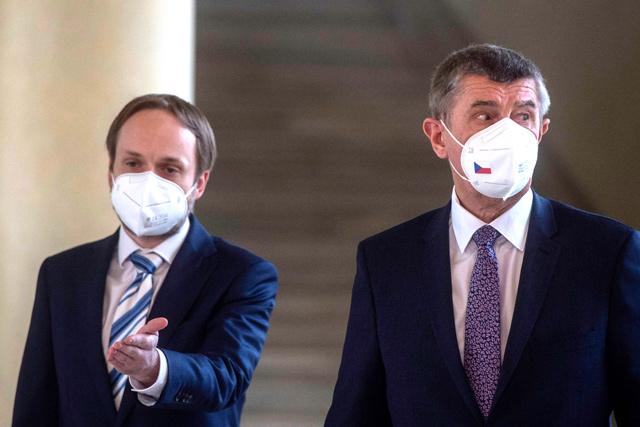- International News
- Thu-2021-04-22 | 03:09 pm

Nayrouz News Agency :
The Czech government on Wednesday gave Moscow an ultimatum, warning it may expel more Russian diplomats unless the 20 Czech nationals ejected from Russia are allowed to return to work by noon on Thursday.
Prague expelled 18 Russian embassy staff and Moscow sent back the Czech diplomats in retaliation on Monday, in a row over Russia's alleged role in an explosion that killed two people in the Czech Republic in 2014.
"The Russian Federation has until 12:00 tomorrow (10:00 GMT) to allow the return of all expelled diplomats back to the Czech embassy in Moscow," Jakub Kulhanek, the new Czech foreign minister, told reporters.
"If they cannot return, I will cut the number of Russian embassy staff in Prague so it would correspond to the current situation at the Czech embassy in Moscow," he added.
After summoning Russian ambassador Alexander Zmeyevski, Kulhanek said Moscow's retaliation was "disproportionate and it in fact paralysed the embassy".
The Czech Republic currently has five diplomats and 19 technical staff at the embassy in Moscow, far fewer than the Russian workforce in Prague.
"The expulsion of 18 Russian diplomats in turn did not jeopardise the functioning of the Russian embassy," said Kulhanek, who was only appointed as minister on Wednesday.
Reset relations?
Czech officials including Interior Minister Jan Hamacek, who was standing in as foreign minister until Kulhanek's appointment, said on Tuesday that they might aim to reset relations with Russia — and that this could involve the expulsion of all Russian diplomats in Prague.
Prague accused Russian secret services on Saturday of being behind an explosion at an ammunition depot near the eastern village of Vrbetice in 2014 that killed two Czech nationals.
Czech police are seeking two men in connection with the blast as well as with a second non-fatal explosion nearby later that year.
The men have also been identified as suspects in the 2018 poisoning of former Russian double agent Sergei Skripal in Salisbury, England.
The Czech attack allegedly targeted ammunition belonging to a Bulgarian arms dealer who probably sold arms to entities fighting against Russia.
The explosion occurred the same year that Russia annexed the Crimean Peninsula from Ukraine and a conflict broke out between Ukrainian forces and Russia-backed rebels in the east of the country.
As the row escalated, the Czech government announced that Russia’s atomic energy agency Rosatom would be excluded from a tender to build a new multibillion-euro unit at a Czech nuclear plant.
Hamacek also said that Prague would no longer consider buying Russia’s Sputnik V vaccine against COVID-19.













